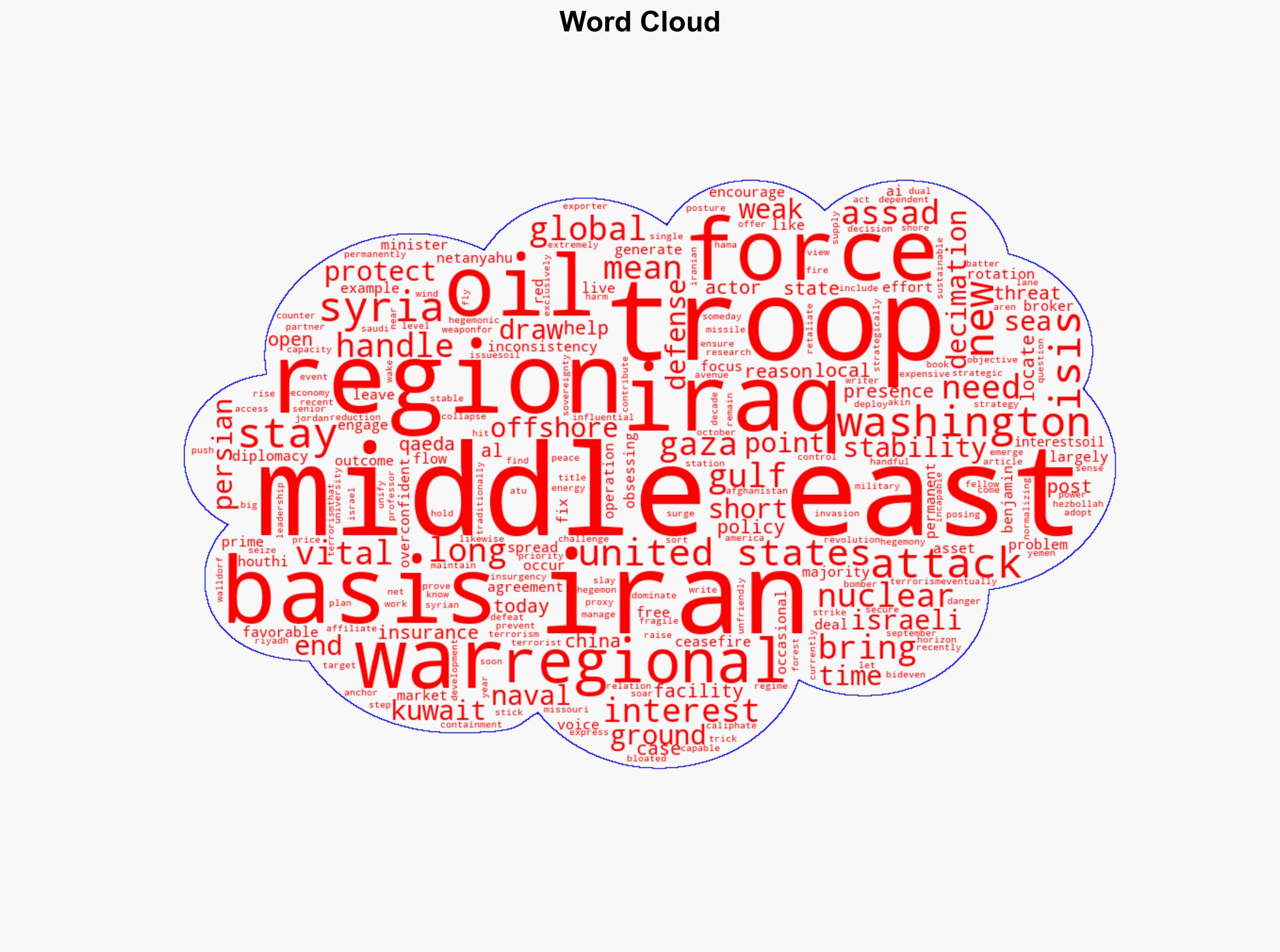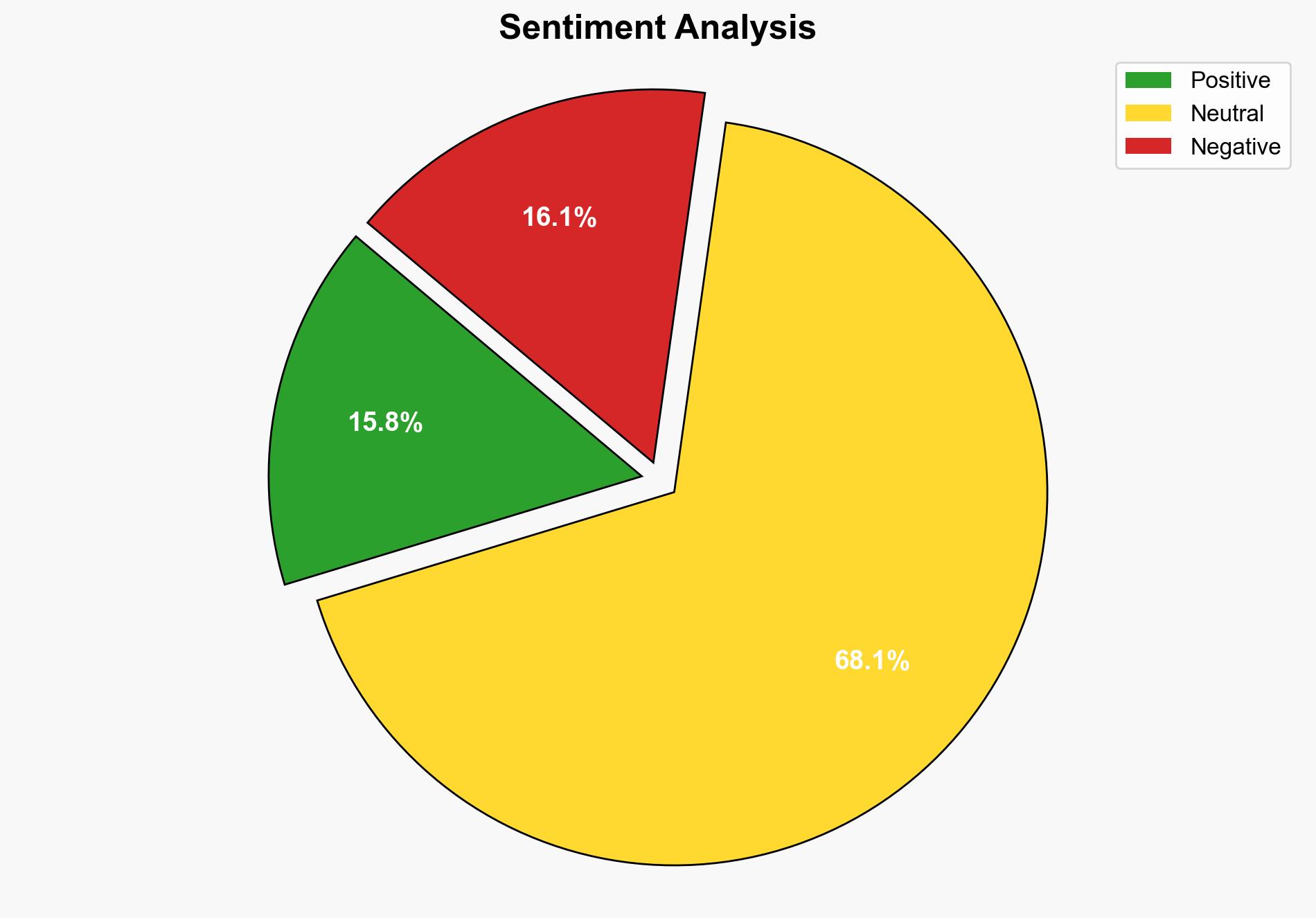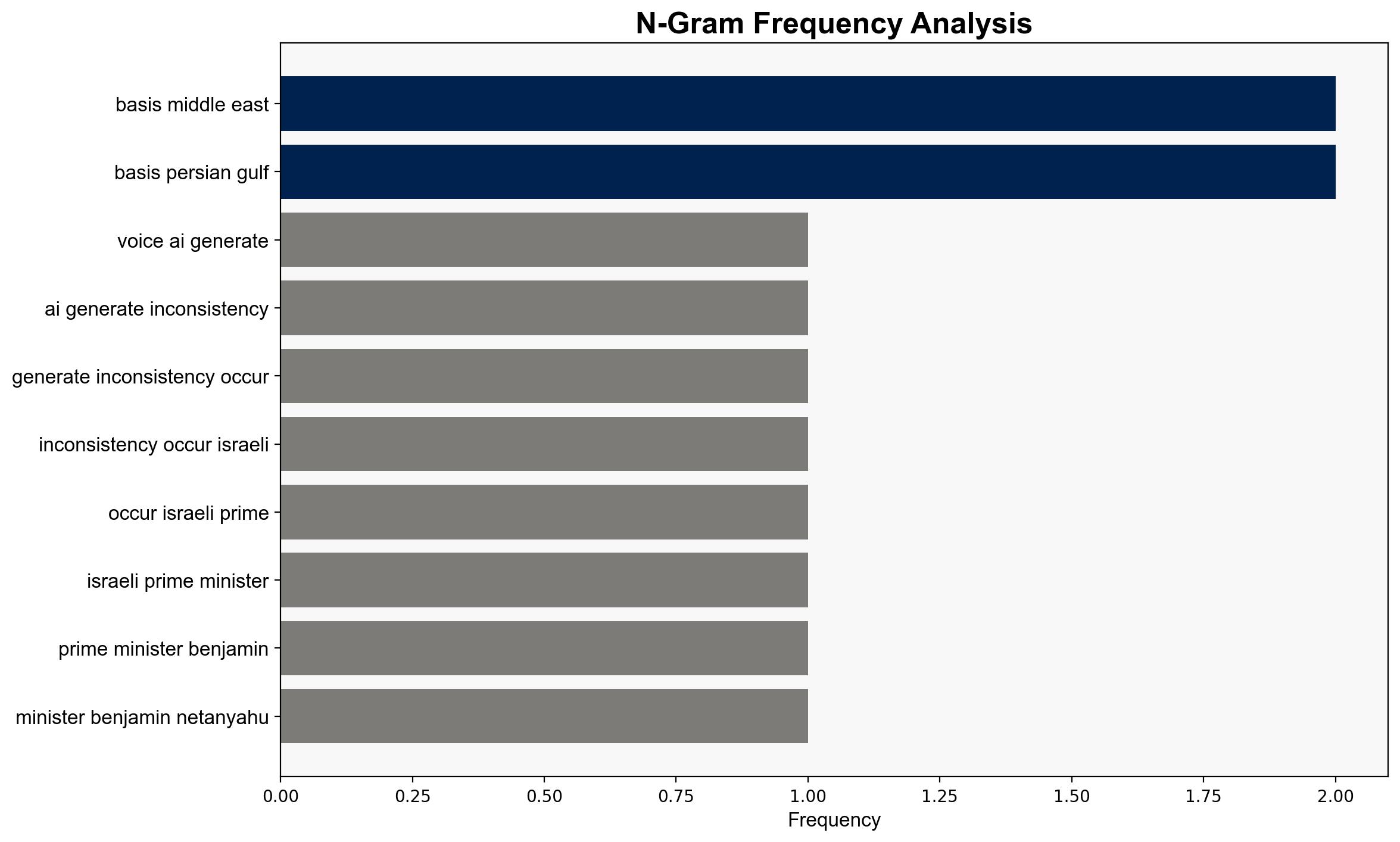There Are No More Reasons for US Presence in Middle East Opinion – Newsweek
Published on: 2025-07-28
Intelligence Report: There Are No More Reasons for US Presence in Middle East Opinion – Newsweek
1. BLUF (Bottom Line Up Front)
The most supported hypothesis suggests that the strategic necessity for a substantial US military presence in the Middle East has diminished due to changes in energy independence, regional dynamics, and evolving threats. Confidence level: Moderate. Recommended action: Reassess and potentially reduce military footprint while maintaining strategic naval bases and diplomatic engagement to safeguard interests.
2. Competing Hypotheses
1. **Hypothesis A**: The US should significantly reduce its military presence in the Middle East as its strategic interests, such as energy security and counter-terrorism, no longer necessitate a large-scale deployment.
2. **Hypothesis B**: The US should maintain its current military presence to counterbalance regional instability, deter potential hegemonic powers, and protect allies like Israel.
Using ACH 2.0, Hypothesis A is better supported by the evidence of US energy independence, the diminished threat from regional actors like ISIS, and the ability to project power from offshore. Hypothesis B is supported by ongoing regional instability and the potential threat from Iran and other actors.
3. Key Assumptions and Red Flags
– **Assumptions for Hypothesis A**: US energy independence reduces the need for a Middle Eastern presence; regional actors are unable to pose a significant threat without US ground forces.
– **Assumptions for Hypothesis B**: Regional instability and threats from Iran necessitate a continued US presence; allies depend on US military support.
– **Red Flags**: Potential underestimation of Iran’s regional influence; overconfidence in local actors’ ability to manage threats.
4. Implications and Strategic Risks
– **Economic**: Reducing presence could lower military expenditures but risk destabilizing oil markets if regional tensions escalate.
– **Geopolitical**: A reduced presence might embolden Iran or other regional powers, potentially leading to increased influence or conflict.
– **Psychological**: Perception of US withdrawal could impact alliances and deterrence credibility.
5. Recommendations and Outlook
- Conduct a strategic review of military deployments, focusing on maintaining key naval bases and rapid response capabilities.
- Enhance diplomatic efforts to strengthen regional alliances and address root causes of instability.
- Scenario Projections:
- Best Case: Reduced presence leads to regional stability and cost savings.
- Worst Case: Withdrawal results in increased regional conflict and economic disruption.
- Most Likely: A balanced reduction maintains stability while reducing costs.
6. Key Individuals and Entities
– Benjamin Netanyahu
– Regional actors such as Iran and local insurgency groups
7. Thematic Tags
national security threats, cybersecurity, counter-terrorism, regional focus





